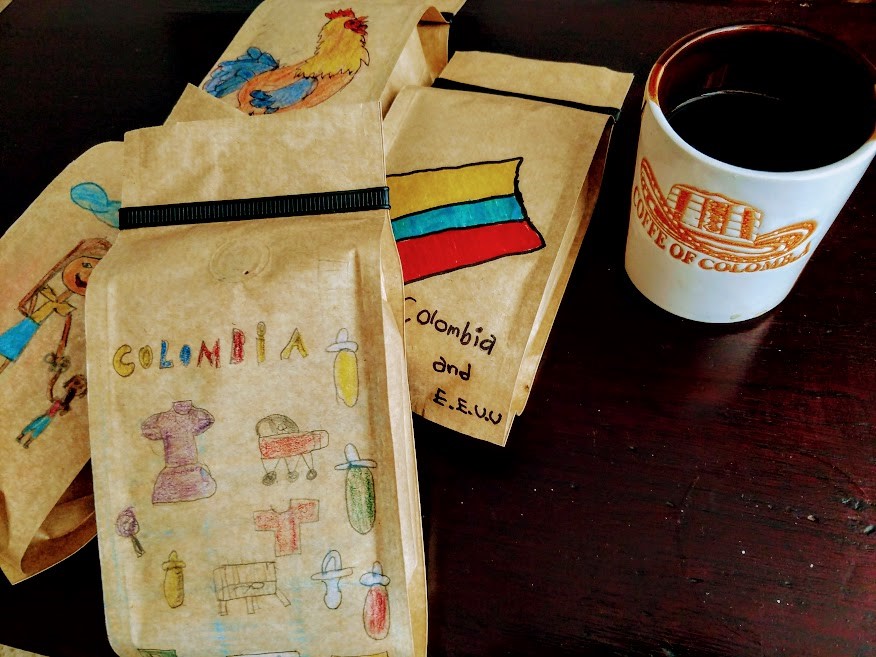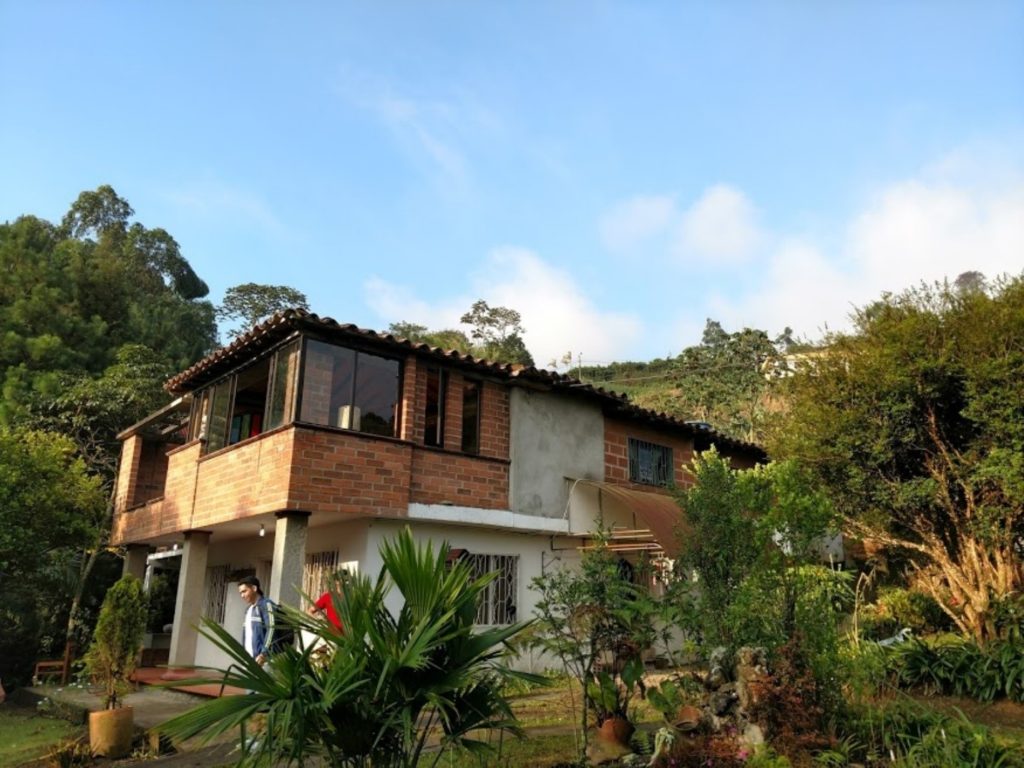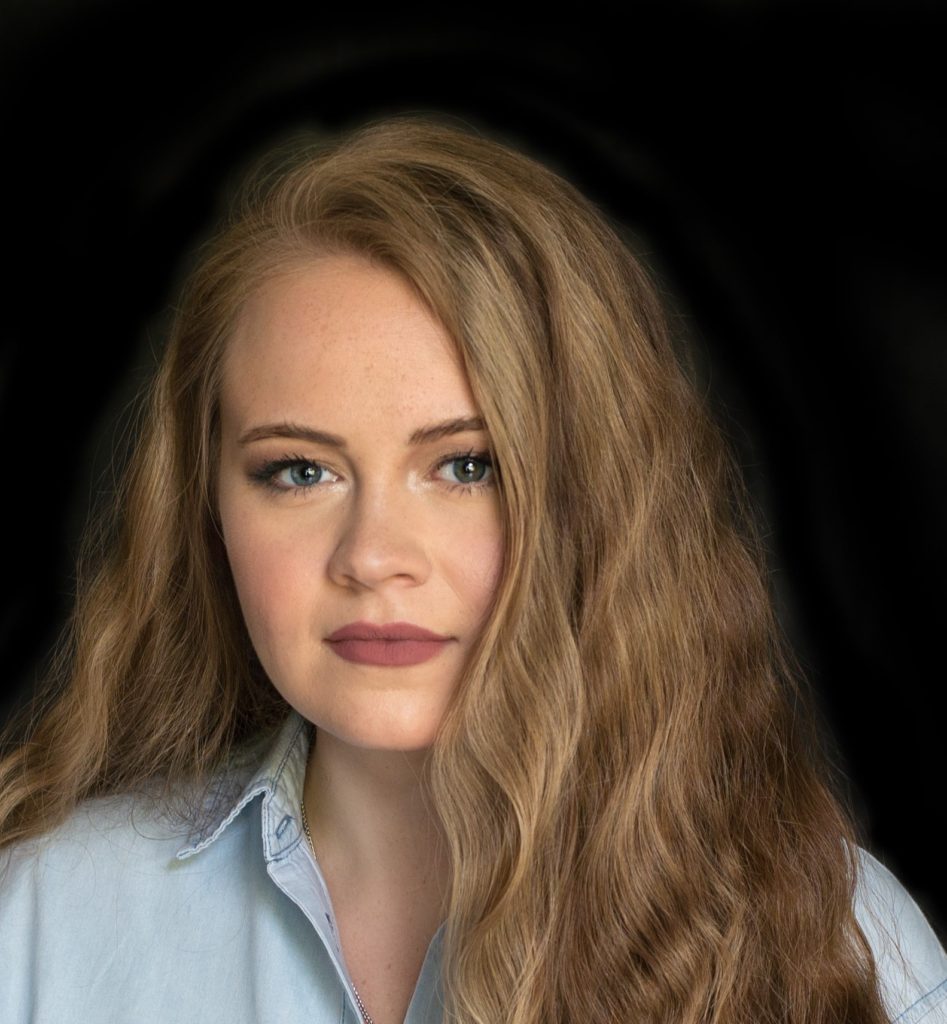By Mary Evelyn Clark
No one comes out here at night. At least, not the decent people. All the upstanding citizens of Medellin, Columbia, are asleep in their beds, but the streets are still full of life: dark, dirty and heavily painted life on trash-piled streets and under dim orange street lights, selling everything they have for a meal or to fund their drug habit. Usually, all they see are men—many Colombian, many sex tourists from other countries. But tonight, something is different. The people with the blue and white hats that read “Global Transformación” are back, handing out juice boxes and snacks to the girls selling themselves, heedless of the high crime rates in the area. They ask nothing in return, giving nourishment and a kind word to all they can.
To one girl, they seem to offer more. Her swollen belly marks her as pregnant, her clothes and the pallet under the overpass she’s just vacated mark her as homeless. She can’t be more than 18 or 19, yet here she is. She sees the tall gringo in the group and makes a beeline for him, saying, “Take me home with you.” She isn’t a prostitute looking for a client. She is a girl—pregnant, homeless, alone and desperate not to have a baby right there on the street. Desperate to get away from the life of dark and dirt and shame that opened like an endless tunnel in front of her, for her child.
The gringo just looks at her, at a loss for words. What could he tell her? That they didn’t have a place for her? That they couldn’t help her? He gives her the snack and the juice and prays for her. He also prays silently to be able to do.
Cambiando Vidas
Brian Miller never forgot that girl, and though he couldn’t help her, he resolved that next time he would be able to say yes. Born in Cross Lanes, WV, Miller had been working as a missionary in Medellin for 10 years when he met that girl. He was married to his lovely Colombian wife with whom he shares two children, and their church, Global Transformation, was small but growing, already a blessing to its community. But with the plea of this one girl in such a bleak situation and so willing to accept help, the ministry began to grow a new branch: helping the homeless pregnant girls of Medellin.
As of 2017, Medellin held 2.5 million people in 148 square miles, not counting the other cities in the same valley. That year found the entire state of West Virginia at 1.8 million. With such a concentrated population, and the city’s reputation for the sex trade born out of the Escobar years, prostitution is rampant. Many girls find it an easy way to make money, usually to satisfy a drug habit, and clients will pay extra not to use contraception. When a girl becomes pregnant, she can no longer be sold and is often kicked out of her home for being unable to make money. Most of the girls try to abort their babies through unethical and unsafe methods, which often prove fatal to both mother and child.
When Miller encountered this problem, his solution was to give the girls something they had never had: a home where they can be safe with their children and receive job training to provide a better future for their families. As with any big idea in ministry or in business, the immediate problem was, how was this small church going to raise that kind of money?E
El Poder Del Café
With coffee being such a large part of Colombian as well as American culture, the idea to sell coffee to raise money for the girls’ home came easily enough. Not so easy was the process of finding the product, getting it to the U.S. and making enough money from it for land, housing, furnishings, food, doctor bills and the countless other things the project entailed.

Upon hearing about the project, a local coffee farmer offered his product at cost. As an added bonus, his coffee was certified as some of the most flavorful in the country. Once Miller had the plan and the coffee, finding buyers proved to be the easy part. Friends bought it for themselves and to give as gifts. Realtors used it for housewarming gifts, churches served it on Sunday mornings and coffee aficionados bought it just because it was good. Not only were they getting a good product, they knew that buying the coffee provided funds to remove girls from sex trade and get them off the streets. A school in the same city as Global Transformation, a poorer area of the valley, also showed interest in the project. Seeing the students’ and staff’s enthusiasm to help, Miller took the coffee bags to the school and let the kids draw on them, giving the bags a touch of personality and the kids a way to help. While the students decorated bags in Colombia, Miller’s friends and family back home created more opportunities for people in the states to help. Friends, families and even church youth groups acted as distributors for the coffee in their own circles, allowing the project to move forward. All the proceeds went into a fund for the house, but there was still a long way to go.
In February 2019, Miller found the perfect property for the girls’ home: a spacious, old, two-story house with some land on the side of the valley where it is cooler and quieter and the air is cleaner. Miller named the house Casa Esther and plans for renovations began immediately.

Photo by Mary Evelyn Clark.
The house, when complete, will have room for 15 girls and their babies as well as house mothers, along with classrooms for the girls to learn a trade so they have a way to live after leaving Casa Esther.
Once the house is ready, two bags of coffee will provide for one girl and her baby for one day. Plans are also moving forward to purchase space for a coffee shop, which will not only allow more coffee to be sold and more money to be made for the girls but will provide jobs in the Medellin area for those who need them.
Puedes Ayudar
Prostitution is a world-wide problem, but in a city dubbed the world’s biggest brothel, the number of girls trapped in this lifestyle—many from a very early age—is staggering. With the influx of Venezuelan refugees in recent years, the U.S. Department of State expects those numbers to rise. While Miller’s ministry can only help 15 girls at a time, that is 15 girls with a home, food, love and the ability to provide for themselves once they leave. Buying coffee from this ministry not only guarantees a delicious cup of joe in the morning but gives homeless girls a chance at a new life.
The organically processed coffee comes in whole bean and ground in half-pound bags, and the next shipment is scheduled for the first week of May. Even if you aren’t a coffee drinker, there are still plenty of ways to help. Email Miller at brian@tministries.org for more information.
About the Author

Mary Evelyn Clark is a graduate of Kennesaw State University, where she worked as a writing assistant and graduated with a bachelor’s degree in English. She currently works as an intern at Gather Technologies, Inc. in Atlanta, GA. She loves to travel and has been to six countries. When she is at home, Clark enjoys hiking the Appalachian foothills and expanding her culinary skills.



